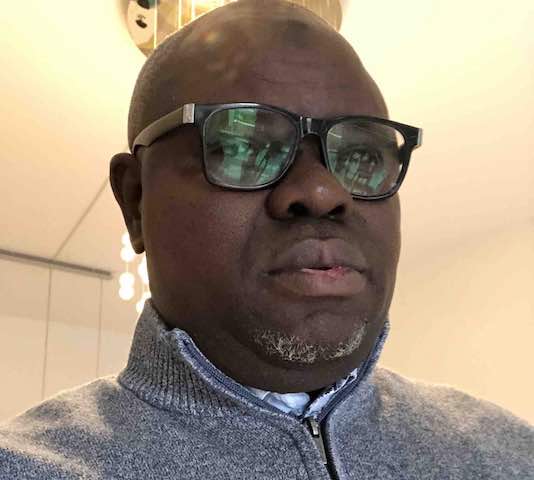
And just as we are accustomed to in many of our other national and local mysteries, the real findings about what has terminated some lives and turned many into handicaps may never be known by ordinary Nigerians. Explosives in Bodija! What, for goodness sake, could any object of this dangerous make be doing in what used to be the neighbourhood of the elite and an area that has now lost its age-long peace and serenity to the commercialisation drive of young businesses of various hues?
Even the morning after, several hours later, we could not be too certain of the enormity of the tragedy that befell us in Ibadan with the Armageddon that ripped open the underbelly of so many hidden facts about our national existence.
Each disaster has a way of exposing and making fun of our vulnerability, especially in those critical areas of life that we ought to take serious as a people. The sight of victims of the explosions being conveyed to hospitals in open vans reveals how distressingly unprepared we always are for emergencies.
What started like a confused scene sending fearful residents scampering for safety, even when they little knew what, exactly, was pursuing them, has turned out to be the detonation of explosives (according to preliminary findings) that have raised more questions that we may never get accurate and adequate answers to.
And just as we are accustomed to in many of our other national and local mysteries, the real findings about what has terminated some lives and turned many into handicaps may never be known by ordinary Nigerians. Explosives in Bodija! What, for goodness sake, could any object of this dangerous make be doing in what used to be the neighbourhood of the elite and an area that has now lost its age-long peace and serenity to the commercialisation drive of young businesses of various hues?
My knowledge of Ibadan reminds me of the serenity of Bodija, albeit, until the development that has enveloped the neighbourhood in recent years on Awolowo and Oshuntokun avenues. Both twin major streets stretch and open their legs into the Secretariat-Bodija Market Road; kissing each other in front of the Oyo State Housing Corporation building.
My most recent visit to Ibadan showed the tremendous transformation of the Awolowo Avenue that I knew with rendezvous centres and night clubs, which make the avenue come alive at night, with many girls swarming the clubs in skimpy dresses and lining the road, waiting for ‘customers.’
Adeyi Avenue, as I knew it, was the neighbourhood of eminent folks, such as late Chief Bola Ige, a former governor of old Oyo State; Iyiola Oladokun, a former Deputy Governor of the state; late Governor Abiola Ajimobi, who had his campaign office there while seeking the leadership of the state; and I recall that Architect Adeyemo, a former senator representing Oyo East, lives off the popular avenue.
In my conversations with a very elderly friend who resides off Awolowo Avenue and whose property shook to its very foundation on the night of Tuesday, I was not surprised when he expressed his conviction that investigators must not foreclose the possibilities of some terrorist intentions and that the explosions could just be a tip of what is to come in an entirely coordinated attack in this part of the country.
With the long existent Davis Hotel serving the quiet needs of the upper class and tucked inside Adeyi Avenue, and new hospitality ventures coming up in the neighbourhood, you could never miss the conclusion that Adeyi has had a peaceful existence.
Going by the revelation of Governor Seyi Makinde and the confirmation of the National Emergency Management Agency (NEMA) on Wednesday, we are back to the question: What could explosives possibly be doing in that neighbourhood?
“Illegal miners,” as Governor Makinde called the supposed owners of the devices that shattered the peace of Ibadan, by inference, are probably housed in the neighbourhood, from where they coordinate their nefarious activities on the mining fields in Oyo, Osun and possibly Ogun states.
Allied questions also come up to agitate our minds and answers must be provided to these posers fast, lest some other insinuations are imputed to the tragedy that happened on Tuesday.
In the bewildering awe that we are all entrapped in, conspiracy theories, such as ethno-religious complications that we have all lived with in recent times, are inevitable.
In my conversations with a very elderly friend who resides off Awolowo Avenue and whose property shook to its very foundation on the night of Tuesday, I was not surprised when he expressed his conviction that investigators must not foreclose the possibilities of some terrorist intentions and that the explosions could just be a tip of what is to come in an entirely coordinated attack in this part of the country.
Who owns the property in which the explosion happened? Assuming “illegal miners,” which Governor Makinde called them, reside in the property, who do they work for? It is an open secret that all the illegal miners in Nigeria have their Nigerian local partners who facilitate things and soften the grounds for them. Such partners are usually big men in the society, from well-known traditional rulers to heavy political gladiators and some ruthless businessmen.
I wish this is not true. But our wishes and prayers are one thing. The intention of those committed to evil is another. Which is why posers must be raised over the ownership of the cars suspected to have carried the Improvised Explosive Devices (IEDs). Who owns the property in which the explosion happened? Assuming “illegal miners,” which Governor Makinde called them, reside in the property, who do they work for? It is an open secret that all the illegal miners in Nigeria have their Nigerian local partners who facilitate things and soften the grounds for them. Such partners are usually big men in the society, from well-known traditional rulers to heavy political gladiators and some ruthless businessmen.
Illegal mining and insecurity in Nigeria are intrinsically linked. In a report authored in 2023 by Oluwole Ojewale, regional organised crime observatory coordinator for Central Africa, and Freedom Onuoha, senior lecturer in the Department of Political Science and coordinator, the Security, Violence and Conflict Research Group, University of Nigeria, they conclude that, “In the banditry-affected communities of Nigeria’s north-west and central areas, loose criminal networks engaging in illegal gold mining have ties to foreign actors and facilitate trafficking flows. Most criminal markets for gold in the country are driven by foreign demand but are propped up by local actors.”
Is the story different from Zamfara to Ilesa, where activities of miners have turned lives upside down? Local chiefs and so-called influential figures connive to do in their own people for foreigners to ravage community land and take away their resources.
Mr Dele Alake, the Nigerian minister in charge of mining has directed his ministry to join the investigations. I even think his ministry should take the lead and be assisted by other stakeholders to unravel what indeed has transpired in Ibadan.
The minister may be interested in another postulation by the authors cited above, where they said, “Most of the mining activities are being done by illegal miners because mining sites have been neglected by regulators and security agents. Chinese and other foreigners too are taking advantage of this prolonged neglect by the nation’s mining regulators and security agents. It’s also the reason why bandits are attracted to the sector.”
Sanitising the mining sector is perhaps Alake’s biggest task and there is just no time to waste to achieve this.
I had a chance encounter with some Chinese opportunists (I refuse to call them investors) at a dinner in Abuja recently. My interaction with them again reaffirmed the belief that those we erroneously refer to as “investors” are no more than hyenas who have come to take advantage of our flesh and leave us with bones.
But then, a country that sits on fortunes but chooses to trample on it will eventually yield its wealth to vultures.
What happened in Ibadan, should it be the result of explosives owned by illegal miners, is just another sad reminder that (in the words of Ola Rotimi), we have left our pot unwashed and our food now burns.
Semiu Okanlawon, a journalist, media strategist and consultant, is the Publisher of NPO Reports.










